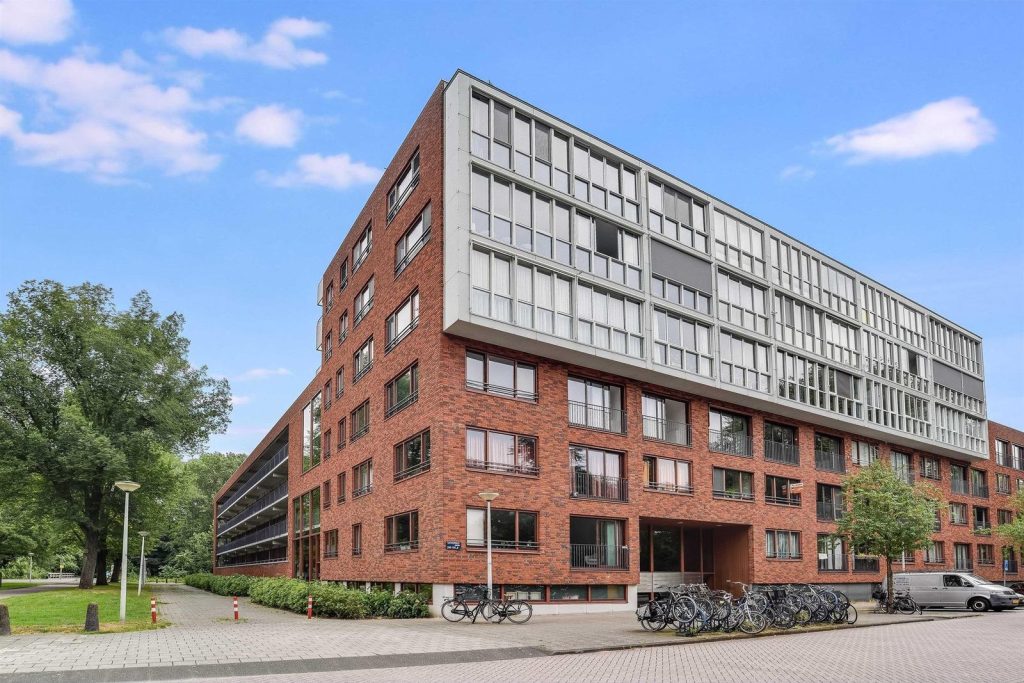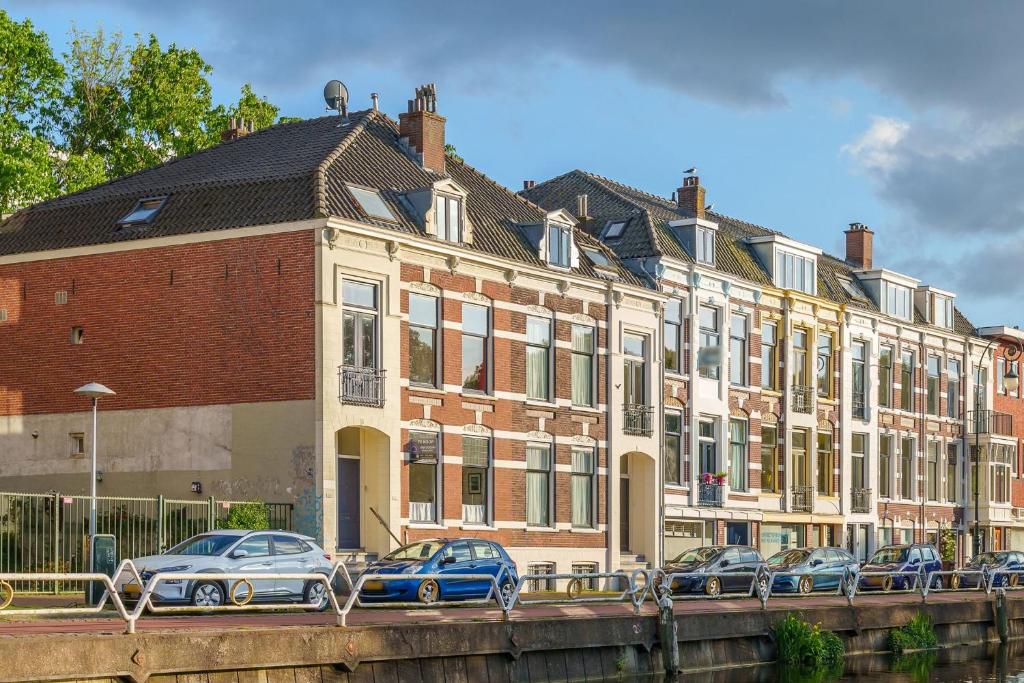Buying property abroad is a strategic move that opens up new horizons. If you’re wondering how to buy a flat in the Netherlands, this guide will provide the answer. From researching the property market to understanding the nuances of mortgage lending, the process can be daunting. But with the right preparation and knowledge of the key points, you can confidently go through each stage and make the purchase safe and profitable.
Preparing to buy a flat in the Netherlands: where to start
How to buy a flat in the Netherlands is a question for which there is no universal answer, but there are clear steps for a successful start. First of all, you need to decide where you want to live. The Netherlands is a country with diverse regions, and each of them has its own peculiarities:
- Amsterdam is the capital and cultural heart of the country, but its property prices are high.
- Rotterdam is a more modern and industrial city where there is also a high demand for housing, but with prices slightly lower.
- The Hague, known as the legal capital, attracts those looking for tranquillity and convenience to life.
After choosing a city, you should start researching the market. It is important to understand that property in the Netherlands for foreigners requires special attention to legal aspects. One of the important points is the tax, which is 2% of the value of the housing. In addition, consider the cost of registering the property and notary fees. Note: the difference between new build and second homes can affect the price significantly and it is important to understand which option is more suitable.
How to choose a region to buy a property in the Netherlands
How to buy a flat in the Netherlands is an important question to detail, starting with the choice of location. Amsterdam is a dream for many people, but the price of flats here can be shocking. The average cost of a square metre in the capital can reach 5,500 euros. If you are looking for more affordable accommodation, you should consider Rotterdam or The Hague.
If you are ready for a quieter environment, then cities such as Wageningen or Leiden are suitable. These regions are renowned for their well-developed infrastructure and academic institutions. In addition, property in the Netherlands in these cities can cost 20-30% cheaper.
Buying a flat with a mortgage in the Netherlands: what Russians need to know
 Buying property with a mortgage is a real possibility for Russians, but it is important to take into account several important points. Firstly, banks in the Netherlands for foreign buyers can offer a loan of up to 80% of the value of the flat. The interest rate for non-residents, as a rule, will be higher: from 3 to 5% depending on financial data and credit history.
Buying property with a mortgage is a real possibility for Russians, but it is important to take into account several important points. Firstly, banks in the Netherlands for foreign buyers can offer a loan of up to 80% of the value of the flat. The interest rate for non-residents, as a rule, will be higher: from 3 to 5% depending on financial data and credit history.
The process of obtaining a mortgage begins with choosing the right bank. Among the popular banks in the Netherlands for foreign buyers are ABN AMRO and ING. Both institutions offer attractive terms for those who have a stable income or work remotely. At the same time, you need to provide all the necessary documents, including proof of income and employment documents.
Taxes and additional costs when buying a property in the Netherlands
The first and the main one is the property purchase tax, which is 2% of the value of the property. In addition, the buyer will have to pay notary services, which depending on the value of the housing can vary from 500 to 1,500 euros. It is also worth considering the costs of registration of the object and consultations with lawyers.
Monthly expenses such as utilities, insurance and property taxes should not be forgotten. All this in total can significantly increase the financial burden, so it is important to assess the costs of buying a property in the Netherlands in advance to avoid unpleasant surprises.
Property costs in the Netherlands: how to buy a flat at a favourable price
The cost depends directly on the location and condition of the accommodation. In large cities such as Amsterdam, flat prices can reach 6,000 euros per square metre, while in smaller cities such as Leiden or Wageningen, the price can be 20-30% lower. If you want to invest in property in the Netherlands, it is important to consider not only the current value, but also the dynamics of price growth. For example, Rotterdam and Amsterdam are forecast to have stable house price growth over the next few years, making them favourable for long-term investments.
Risks and pitfalls of buying a flat in the Netherlands
To safely buy a flat in the Netherlands, you need to be prepared for several possible risks that can significantly affect the final transaction. In order to minimise potential problems, it is important to take the process seriously and not rely solely on information obtained from public sources:
- Document fraud. As in other countries, there are cases of document fraud, including false deeds of ownership.
- Errors in the contract of sale. One of the most frequent risks is the presence of inaccuracies or errors in the contract itself. This can lead to legal problems or even loss of money.
- Misrepresentation of the mortgage transaction. When applying for a mortgage to buy a property in the Netherlands, you need to be attentive to the details, as the slightest mistake in filing the documents can cause a denial of the loan or even legal problems in the future.
- Non-compliance with documents and regulatory requirements. There are strict requirements for the registration of facilities in the country, and even small discrepancies can cause problems.
- Price fluctuations in the property market. Fluctuations in value may affect the investment. However, many factors such as the economic situation, changes in tax rates and infrastructure development in the region can affect the future price of a home.
How to avoid pitfalls when buying a flat in the Netherlands?
- Work only with trusted agents and lawyers.
- Maintain transparency at all stages of the transaction.
- Factor in any additional costs and don’t forget about taxes.
- Carefully review the contract and all legal details.
Conclusion
 How to buy a flat in the Netherlands? The process is certainly not easy, but with the right preparation and a competent approach, it is quite feasible for Russians. The main thing is to choose the region carefully, assess all the financial and legal aspects, and work with reliable partners at every stage of the transaction. Do not forget to also take into account all taxes, mortgage costs and paperwork, so that the investment in property in the Netherlands will bring long-term benefits.
How to buy a flat in the Netherlands? The process is certainly not easy, but with the right preparation and a competent approach, it is quite feasible for Russians. The main thing is to choose the region carefully, assess all the financial and legal aspects, and work with reliable partners at every stage of the transaction. Do not forget to also take into account all taxes, mortgage costs and paperwork, so that the investment in property in the Netherlands will bring long-term benefits.
 en
en  ru
ru  de
de  ar
ar  es
es  nl
nl  hi
hi  fr
fr  it
it  pt
pt  el
el 









